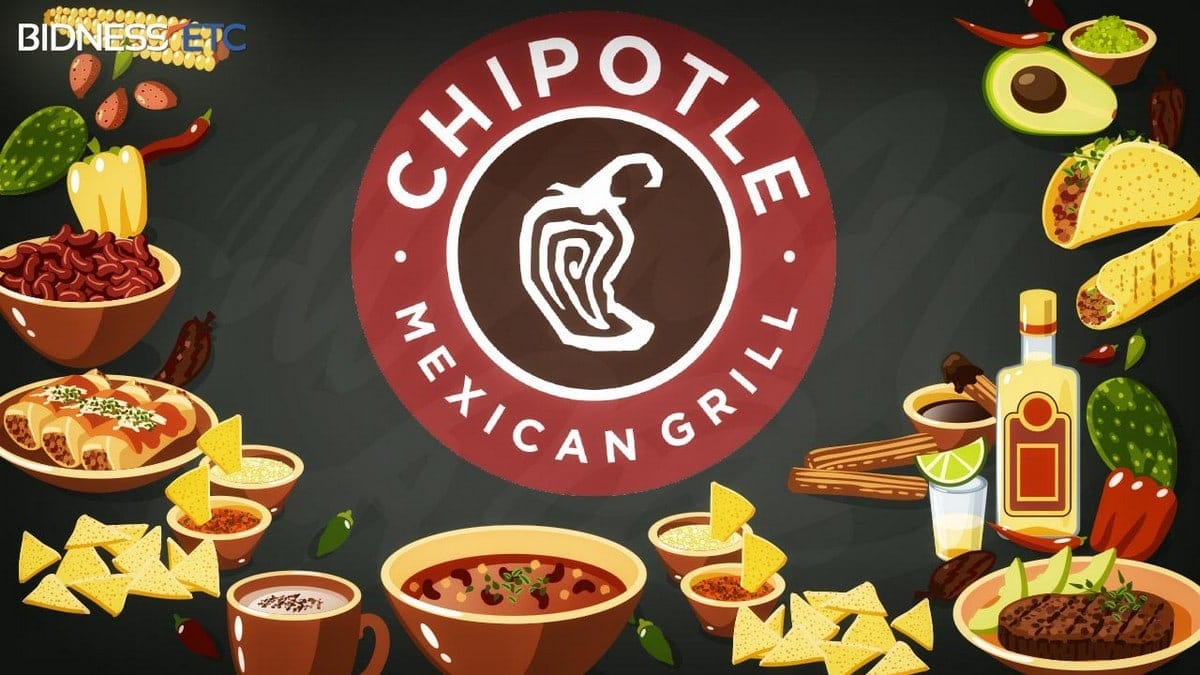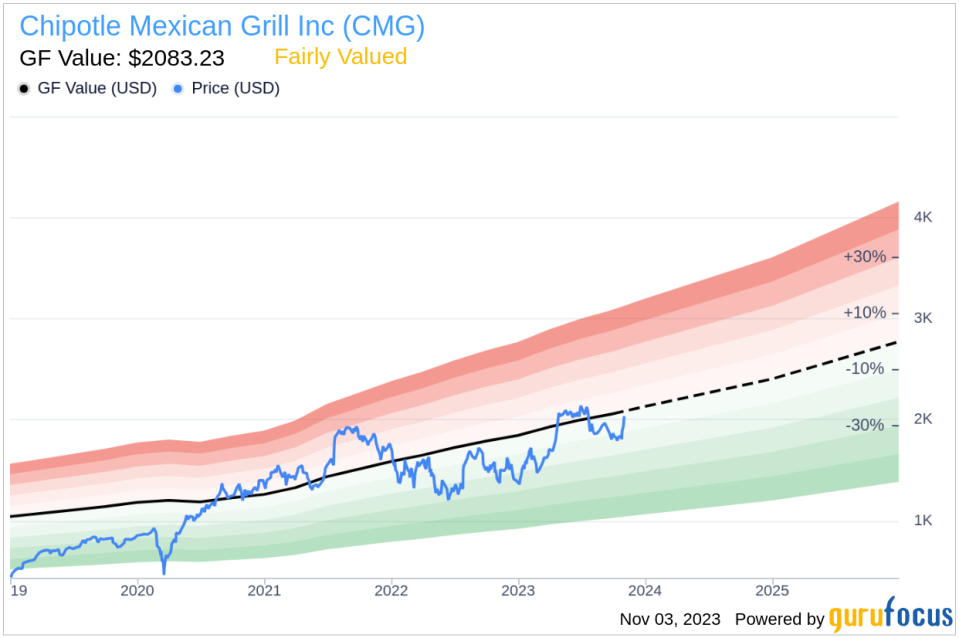Chipotle’s Business Model and Performance
Chipotle Mexican Grill has established itself as a leading player in the fast-casual dining industry, captivating customers with its unique approach to food and service. This essay will delve into the core aspects of Chipotle’s business model, including its emphasis on fresh ingredients, customizable options, and a limited menu. Furthermore, it will examine Chipotle’s recent financial performance, highlighting its revenue growth, profitability, and key metrics such as same-store sales. Finally, it will compare Chipotle’s performance to its competitors within the fast-casual dining sector.
Chipotle’s Business Model, Chipotle stock
Chipotle’s business model is characterized by its commitment to fresh, high-quality ingredients, a focus on customization, and a limited menu. The company sources its ingredients from sustainable farms and suppliers, prioritizing locally grown produce whenever possible. This emphasis on fresh ingredients is a key differentiator for Chipotle, appealing to health-conscious consumers who seek a more wholesome dining experience.
Chipotle’s customizable menu allows customers to build their own meals, choosing from a variety of ingredients such as rice, beans, meats, salsas, and toppings. This personalized approach caters to diverse dietary preferences and empowers customers to create meals that align with their individual tastes. By offering a limited menu, Chipotle streamlines its operations and ensures consistency in its food quality. The company’s focus on a few core menu items allows it to perfect its recipes and maintain a high standard of preparation.
Chipotle’s Financial Performance
Chipotle has consistently delivered strong financial performance in recent years. The company’s revenue has grown steadily, driven by increased customer demand and new store openings. In 2022, Chipotle’s revenue reached $8.5 billion, representing a significant increase from previous years. The company’s profitability has also been impressive, with its operating margins consistently exceeding those of its competitors.
One of the key metrics used to assess Chipotle’s performance is same-store sales. Same-store sales measure the revenue growth of existing stores, excluding the impact of new store openings. Chipotle’s same-store sales have been consistently strong, indicating that the company is effectively attracting and retaining customers. In 2022, Chipotle’s same-store sales increased by 10.1%, demonstrating its ability to maintain its appeal to consumers despite increasing competition in the fast-casual dining sector.
Chipotle’s Performance Compared to Competitors
Chipotle’s financial performance compares favorably to its competitors in the fast-casual dining industry. The company’s revenue growth, profitability, and same-store sales have consistently outpaced those of its rivals. For example, in 2022, Chipotle’s revenue growth outperformed that of other fast-casual chains such as Panera Bread and Subway.
Chipotle’s strong financial performance can be attributed to its unique business model, which focuses on fresh ingredients, customization, and a limited menu. This model has resonated with consumers, leading to increased demand and strong same-store sales. While the fast-casual dining industry is highly competitive, Chipotle’s commitment to quality, customization, and sustainability has enabled it to establish a strong brand identity and attract a loyal customer base.
Key Factors Influencing Chipotle Stock
Chipotle’s stock price is influenced by a variety of factors, both internal and external, that affect its financial performance and investor sentiment. Understanding these factors is crucial for investors to make informed decisions about their investment in the company.
Consumer Spending and Inflation
Consumer spending is a significant driver of Chipotle’s revenue, as it relies heavily on discretionary income for its business. When consumers have more disposable income, they are more likely to spend on dining out, benefiting Chipotle’s sales. Conversely, economic downturns or high inflation can lead to reduced consumer spending, impacting Chipotle’s revenue and stock price.
Labor Costs
Labor costs are a significant expense for Chipotle, as its restaurants are heavily reliant on employees. Rising wages, particularly in the restaurant industry, can put pressure on Chipotle’s profit margins. The company’s ability to manage labor costs efficiently is crucial for maintaining its profitability and investor confidence.
Food Supply Chain Disruptions
Chipotle’s supply chain is vulnerable to disruptions, particularly in times of global uncertainty or natural disasters. These disruptions can lead to higher food costs, ingredient shortages, and operational challenges, impacting Chipotle’s profitability and stock price.
Expansion Strategy
Chipotle’s expansion strategy, including new restaurant openings and digital ordering initiatives, plays a crucial role in its stock performance. Successful expansion can drive revenue growth, increase market share, and enhance investor confidence. However, expansion also involves significant capital investment and operational risks, which need to be carefully managed.
Investor Sentiment and Analyst Ratings
Investor sentiment and analyst ratings can significantly influence Chipotle’s stock price. Positive investor sentiment and favorable analyst ratings can boost demand for Chipotle’s stock, leading to price appreciation. Conversely, negative sentiment or unfavorable ratings can lead to decreased demand and stock price decline.
Future Outlook and Investment Considerations: Chipotle Stock

Chipotle’s future outlook hinges on its ability to navigate a dynamic landscape of consumer preferences, market trends, and technological advancements. While the company boasts strong fundamentals and a loyal customer base, several factors could impact its long-term growth trajectory.
Growth Prospects and Market Trends
Chipotle’s future growth prospects are tied to its ability to adapt to evolving consumer preferences and market trends. The company’s focus on fresh, high-quality ingredients resonates with health-conscious consumers, but it must remain agile to cater to evolving dietary needs and preferences. For instance, the rise of plant-based diets and increasing demand for vegan and vegetarian options present opportunities for Chipotle to expand its menu offerings. Additionally, the company’s commitment to sustainable practices and ethical sourcing aligns with growing consumer interest in socially responsible brands.
Risks and Opportunities
Investing in Chipotle stock involves a careful consideration of both risks and opportunities.
Risks
- Competition: Chipotle faces stiff competition from other fast-casual restaurants, including established players like Panera Bread and Subway, as well as emerging competitors offering similar concepts.
- Food Safety Concerns: Chipotle has experienced food safety challenges in the past, leading to temporary closures and reputational damage. Maintaining stringent food safety protocols is crucial to avoid future incidents that could negatively impact consumer trust and sales.
- Economic Fluctuations: Chipotle’s business can be affected by economic downturns, as consumers may cut back on discretionary spending, including dining out.
- Labor Costs: Rising labor costs, particularly in the restaurant industry, can impact Chipotle’s profitability. The company’s reliance on a large workforce necessitates effective labor management strategies to mitigate these costs.
- Supply Chain Disruptions: Chipotle’s reliance on fresh ingredients can be vulnerable to supply chain disruptions, such as weather events or global trade conflicts. Ensuring a reliable and resilient supply chain is essential for maintaining consistent product availability and quality.
Opportunities
- Digital Expansion: Chipotle has made significant strides in digital ordering and delivery, leveraging online platforms and mobile apps to enhance customer convenience. Further expansion in digital channels could drive growth and attract new customers.
- International Expansion: Chipotle has limited international presence, presenting opportunities for growth in new markets. Expanding into regions with strong demand for fast-casual dining could unlock significant revenue potential.
- Menu Innovation: Chipotle’s focus on fresh ingredients and customization allows for ongoing menu innovation. Introducing new menu items and limited-time offerings can attract customers and drive sales.
- Loyalty Programs: Implementing effective loyalty programs can encourage repeat business and build customer engagement. Rewarding loyal customers can foster brand affinity and drive long-term revenue growth.
Technological Advancements and Changing Consumer Preferences
Chipotle’s future success hinges on its ability to embrace technological advancements and adapt to evolving consumer preferences.
Technological Advancements
- Artificial Intelligence (AI): AI can be leveraged for various purposes, including optimizing menu offerings, improving order accuracy, and personalizing customer experiences.
- Robotics and Automation: Chipotle can explore robotics and automation to streamline operations, enhance efficiency, and reduce labor costs.
- Data Analytics: Harnessing data analytics can provide insights into customer preferences, demand patterns, and operational efficiency, enabling Chipotle to make data-driven decisions.
Changing Consumer Preferences
- Convenience and Speed: Consumers increasingly prioritize convenience and speed in their dining experiences. Chipotle’s continued investment in digital ordering, delivery, and streamlined operations is crucial to meet these expectations.
- Transparency and Sustainability: Consumers are increasingly interested in transparency regarding food sourcing, ethical practices, and environmental sustainability. Chipotle’s commitment to these values resonates with this growing segment of the market.
- Personalization: Consumers desire personalized experiences, including customized menu options and tailored recommendations. Chipotle can leverage technology to provide a more personalized dining experience.
Chipotle stock has been on a rollercoaster ride in recent years, mirroring the broader market volatility. However, investors are closely watching the company’s performance under new leadership, as they look for signs of a sustainable growth strategy. It’s worth noting the success of ceo laxman narasimhan in turning around Starbucks, which could offer valuable insights into how Chipotle might navigate its own challenges and opportunities.
Ultimately, Chipotle’s future success hinges on its ability to innovate and adapt to changing consumer preferences, just like Starbucks did under Narasimhan’s guidance.
Chipotle stock has been a hot topic lately, with investors eager to capitalize on the fast-casual chain’s continued growth. Brian Niccol, the CEO of Chipotle, has played a key role in this success, having previously led Domino’s Pizza to record-breaking results.
It’s no surprise that his net worth has skyrocketed, as you can see here , and his leadership has undoubtedly contributed to Chipotle’s stock performance.

